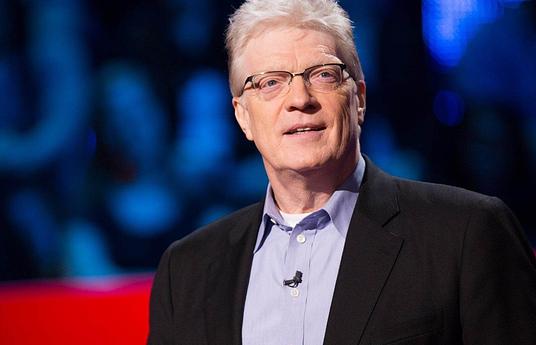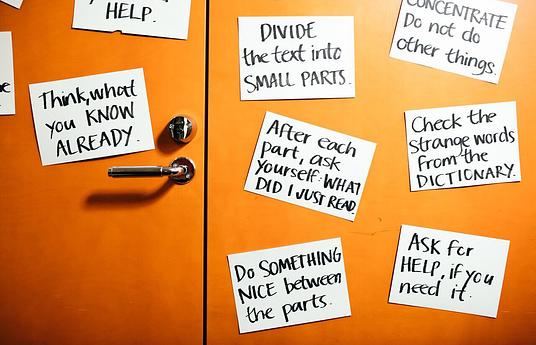China, Estonia and Singapore have topped the education league tables, which sums up the PISA results in a nutshell. To find meaning in the results however, you have to dig a little deeper, so let’s find out what the results are really telling us – if they tell us anything at all that is.
After the results had been announced Andreas Schleicher, head of PISA, discussed the outcomes of the science examinations during a Q&A Webinar to reveal what they really mean. To start, it was interesting to discover that although our world sees the sciences as of paramount importance, with the rise in technology sparking governments and policy makers to heavily favour STEM subjects, that science results in schools have actually not improved – they’ve slightly decreased.
Are top results directly related to culture?
Andreas was quick to dismiss the idea that good outcomes were based purely on culture. Finland and China both fared well, and are both very different countries – so the easy go-to cliche of Asian countries being academically minded, with their culture promoting education, doesn’t necessarily ring true. Although, a cluster of Asian countries did remain and compete at the top of the tables. So there is something about Asian countries’ approach to education that gets good results through standardised testing.
For those moving countries as immigrants or refugees, it’s more important which country you end up in than which country you are from...
"
When we spoke to Pak Tee Ng, Singapore's leading educationalist, this round's top performing PISA country, he was quick to put PISA's results in context, 'I think that PISA is a good reference but it's not a report card. So in Singapore we say that we went into PISA because it is a good reference - it tells us something, it's just it doesn't tell us everything. That is to say we are more focused and more concerned about the education of our children in the schools. It is not so much about our position in the league table. That is at least our position in Singapore.'
It is important to note that although the results can show us some trends and reveal some interesting details, the results only tell us what works when you assess through standardised testing. What we learn should be a reference, as Pak Tee Ng suggests, but should not be what education policy is based on. As Maarit Rossi, CEO of Paths to Math, says 'if government education policy is based on PISA results, now that’s a dangerous road to be on.'
Where you are affects your results more than where you're from.
Culture may not be the reason for high results, but countries do play a massive part. The results show that which country you study in, if you’re from a disadvantaged background, massively affects your results. Therefore, Andreas argued, PISA’s ability to compare countries’ education is extremely important as it highlights how in some countries it is easier to overcome your disadvantage.
One profound discovery is that for those moving countries as immigrants or refugees, it’s more important which country you end up in, rather than which country you are from – which makes things such as ‘The Jungle’ in Calais make a lot of sense. It is your host country who will determine how well you do, so of course for those who want or need to move country choosing the right place is paramount as education has the ability to open up futures that otherwise would not be possible. It also shows that everyone has the potential to do well in life, but that their country and its education system can make all the difference when it comes to their futures.
When it comes to gender, boys performed slightly better than girls in science but there wasn’t a big enough difference between the two to make any kind of statement, which is great for tackling the old idea that science is a boys subject. The differences instead lie in the different tasks required within the subject area, and this is where gender differentiation really comes into play. For instance, it is harder for boys to perform well on tasks that require evaluating and designing scientific enquiries, which girls appear to be better at.
Desires and resources aren’t aligned.
What’s one of the most striking outcomes of the PISA results, is that those who do well in science don’t necessarily want to become scientists. Whereas it seems that students from countries who do badly in science and don’t have the resources would like to become scientists. The disparity between ability and aspiration is slightly heartbreaking, and shows how we need to be doing more to mobilise these children so that they can realise their dreams.
It brings up questions such as had they been in a better performing country would they have got the results they needed? And if they had, would they still want to be a scientist? It’s hard to tell, but even so there’s also something we need to fix in higher performing countries which is the aspirations of those there. Particularly the challenge of activating girls to enter the science industry, a heavily male-dominated industry, and making those pathways more readily available to them.
School equality in Finland, the UK and Peru.
People are quick to notice how Finland, once the crowning jewel of PISA, has failed to keep its high spot and is one of the countries that people focus on as it falls. But this is a misconception and a misleading way to view the results. Finland’s results (though have previously fallen) have maintained their position this year with very little difference and they still remain as one of the best performing countries. But what is even more interesting is what it comes top in – results from school to school.
When looking at a country’s results in detail, you will notice that Finland’s schools tend to perform equally well – which suggests that there’s no huge benefit from going to a specific school. This tackles a problem that many countries and individual families face, trying to get their child into a ‘good school’. The choice of school that a child can go to is often down to location (and therefore money - as it relates to property prices in certain areas). Finland has a coherent education plan in place, where every child receives a good education with each school performing on the same high level, which is surely one of the most important aspects of education to get right.
The disparity between ability and aspiration is slightly heartbreaking, and shows how we need to be doing more to mobilise these children so that they can realise their dreams.
"
In the UK, where a lot of focus is on school competition – which school beats the others and how do you get your kids into that school – actually shows that the bigger variation in science results isn’t between schools but within schools. This highlights a bigger problem that the nation should address, how to stop kids from falling through the gaps of education. The focus should shift from their recent plan to open grammar schools and putting schools in competition with each other – to how to accommodate and lift up those who are falling behind within each individual school.
The results have also shown that there is little difference between public and private schools. The point of private schools then seems to shift from paying for your child to get a good education, to sending them to private school to socialise with a certain privileged section of society, which is not what education should be about.
One exception to this rule is Peru where private schools dominated the better results. This is due to a lack of funding in Peru’s public school system and it is suggested that this should be what Peru focuses on going into the future.
Developing countries are improving faster.
Although the worst results come from developing countries, Peru, Colombia and Brazil are actually the fastest improving and therefore it suggests that they are actively developing their education systems. In contrast countries who are in the middle section of the results are improving the least, which suggests that either they are not actively working on their education system or that what they are implementing isn’t necessarily working.
However, we need to be careful when drawing such conclusions from the results. Just because a country is climbing up the league tables doesn't necessarily mean that the children they are educating are receiving a better education than they were before. It could just mean that the education system has been tailored to suit standardised testing. Similarly, just because a country doesn't improve or falls down the league tables, doesn't mean that the measures they are employing aren't working, they might just not be suited to standardised testing. It is harder to determine whether educational systems are holistically supporting students and this would be a more interesting and helpful way of analysing education.
Many of the skills that students need and excell in aren't measurable by PISA.
"
Even so, it will be interesting in the future to see how developing nations continue to evolve their education practices. They are in the unique situation where they can bypass the mistakes of developed nations practices and innovate education from the outset. For instance, initiative Laboratoria is helping Latin American women to crack the tech sector by teaching them how to code – an industry dominated by men, and a subject area that developed nations are struggling to get women into.
League tables don't actually do anything for education.
Although PISA, when looking at the details, can show some interesting trends and pieces of information, the media, and too often policy makers, get too caught up on where their country places on the league table. To focus on this side of PISA reduces the results to not mean much at all. As Johan Brand, founder of Kahoot!, explains ‘PISA is supposed to create a level playing field, but actually what it’s doing is creating an average that’s not relevant to anyone.’
As for the students who took part, who often get forgotten when looking at these results, standardised testing doesn’t necessarily help too much – unless you are lucky enough for that type of examination to compliment the way your brain works. This style of assessment does little to inspire creativity and individualisation within our school pupils.
Many of the skills that students need and excell in aren't measurable by PISA, as Pasi Sahlberg, Visiting Professor at Harvard University, explains, 'Education is much more than being good at reading or math or science. PISA is an indicator of whether an education system is good or not. I believe the future is based on broader concepts. We need creativity, social sciences, arts and music - things that PISA doesn’t measure at all. We need an indicator to assess these things.'
We have some interesting details to think over, and hopefully they will be what governments focus on rather than their position, but the innovation of education is happening outside of these testing systems and these results should not encourage a copycat kind of approach to innovating education. What works in one country doesn’t necessarily work in another and these results don’t give us the whole picture.
PISA can be useful, but it doesn’t necessarily help education to innovate. The change and innovation of education should never be based on test results. Sir Ken Robinson says it best, ‘The PISA league tables have become like the Eurovision song contest of education. We all know what the Eurovision song contest has done for the quality of popular music - not very much.’


